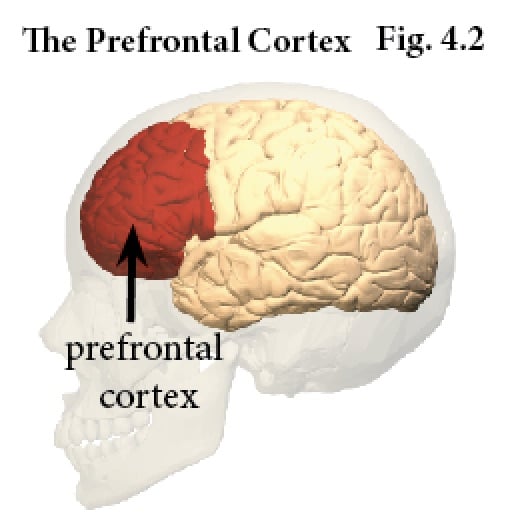
Many people assume that their IQ is determined at birth and is therefore constant throughout their lives. However, our brains, especially during our formative years, are in a continuous process of neural production and pruning. The physical and intellectual stimulation provided by the environment plays a strong role in determining which neural connections are reinforced and which are pruned.
A dramatic phase in your brain growth occurred just before puberty when a proliferation of neurons and synapses appeared in your prefrontal lobe. This is the part of the brain associated with rational thought and executive function. A late phase in the evolution of the human brain, it provided you with a capacity for problem solving, deductive thinking, and drawing inferences–processes typically described as “higher order thinking skills.”
As your entered puberty, another round of rapid and extensive production of neurons and synapses followed by extensive neural pruning, occurred, significantly modifying and restructuring your neural network. By the end of adolescence, the pruning resulted in a decrease of between 5 and 10 percent of your brain mass, but your brain had efficiently attuned itself to the environment in which it would need to function. (You can view contours of the prefrontal cortex at: https://www.youtube.com/watch?v=m0rHZ_RDdyQ ) Throughout this development, we might expect that your IQ would remain relatively stable, because IQ is a measure of intelligence relative to others of the same age. However, recent research indicates that while the average IQ of those in the same age cohort is relatively stable over a span of several years, the IQ of an individual can change significantly during this period.
In a longitudinal study, 33 teenagers of average age 14.1 years were administered an IQ test and a structural brain scan in 2004 and then again in 2007, when their average age was 17.7 years. It was found that during this period, the average IQ of the group had changed very little; however about 20% of the participants showed a positive or negative change in IQ of at least 15 points (one standard deviation). Individual changes in verbal IQ in some cases ranged between –20 and +23, while non-verbal IQ changed between –28 and +17. Furthermore, increases in IQ were positively correlated with increased cortical density and volume in the parts of the brain responsible for language and movement. Magnetic resonance imaging (MRI) revealed that positive changes in IQ corresponded to increased gray matter in sections of the brain associated with those cognitive functions. Summarizing their findings, the researchers reported:*
Our results emphasize the possibility that an individual’s intellectual capacity relative to their peers can decrease or increase in the teenage years. This would be encouraging to those whose intellectual potential may improve, and would be a warning that early achievers may not maintain their potential.
Indeed, during the simultaneous processes of rapid neuron growth and pruning from infancy through adolescence, your brain was in constant flux, changing your personality, your habit of mind and who you are. That’s why the “you” who entered high school is very different from the “you” who graduated university. Your ideas, beliefs, and manner of thinking were changed dramatically by your experiences and intellectual challenges as axons grew and connected neurons forming a complex network of interconnections. Emerging from adolescence like a butterfly from the pupa, you came fully equipped with an adult brain–a neural network containing your sense of self, your passions, your instinctive behaviors, your beliefs, and your capacity to learn.
The changes in your IQ between the times when you were 9 years and 18 years old may not be as significant as the IQ’s that you registered, because IQ tests, like all cognitive tests, do not provide a precise measure of intelligence. An individual taking IQ tests in 3 successive months could have a significant variance in scores. For example, a person of IQ 115 might score 102 on one day and 116 on another. The main thing to keep in mind is that if you exercise regularly and immerse yourself in stimulating cognitive activities, you will be able to move closer to achieving your true intellectual potential. For more information, visit: https://www.intelligence-and-iq.com/increase-my-iq/.
Reference: Ramsden, Sue. et al. 2011. “Verbal and non-verbal intelligence changes in the teenage brain.” Nature. Vol. 479. pp. 113-116.
